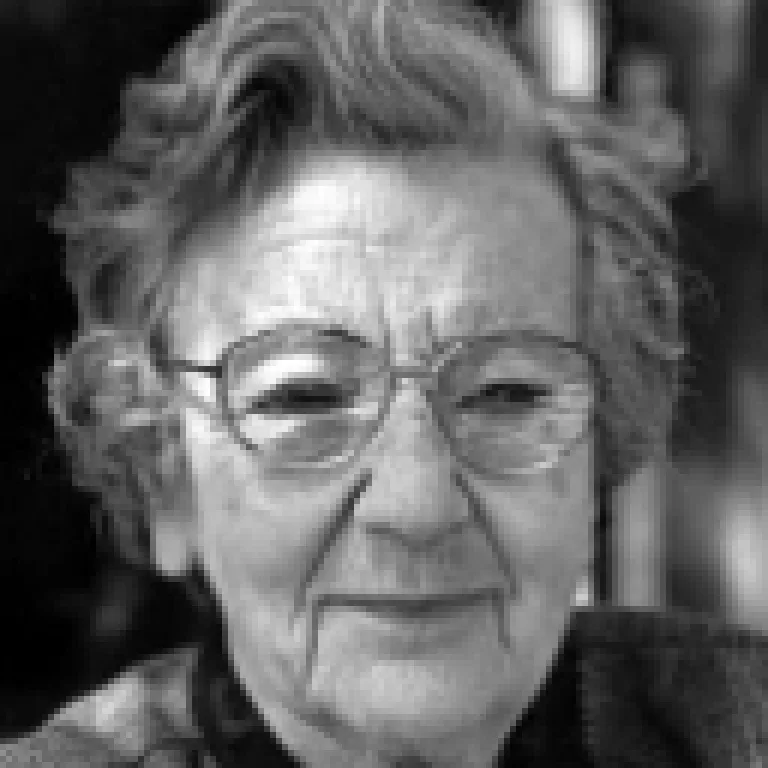
Ursula Franklin
Profile
She was a world-renowned physicist and expert on ancient materials and the social impact of technology. She has also gained prominence as a feminist and educator. Her specialty is metallurgy, and she is often called upon to verify the authenticity of artifacts. "In my teaching, speaking and writing, I try my very best to never give up the science," she says, "but rather to frame it in the broader context."
The first woman to be appointed university professor at the University of Toronto, she was professor of Metallurgy and Materials Science, until retirement in 1989. She pioneered the field of archaeometry, applying modern materials analysis to archaeology. A convinced Quaker, her views on pacifism infuse much of her professional work and her many activities in the women's and peace movements. For these and other humanitarian efforts, she received the 2002 Pearson Peace Medal from the UN Association in Canada. She is a Companion of the Order of Canada, a member of the Order of Ontario, and a Fellow of the Royal Society of Canada. She has received other academic and civic honours as well. A former member of the Science Council and the Natural Science and Engineering Research Council of Canada (NSERC), she is at present a senior fellow at Massey College, University of Toronto, continuing her interdisciplinary work into the impact of technology.
The Ursula Franklin Academy, a Toronto public high school, in which she takes an active interest, is based on her principles, and focuses on the interconnection of knowledge. Her most recent book, The Ursula Franklin Reader: Pacifism as a Map, illustrates how such seemingly disparate subjects - the pursuit of peace, feminism, environmental protection, education and activism - are linked. "Through the Trudeau Foundation Mentors programme, I will have the great privilege and joy to continue to work with young people," she says. "And I hope they will benefit from my experience."
Ursula Franklin died on 22 July, 2016.

